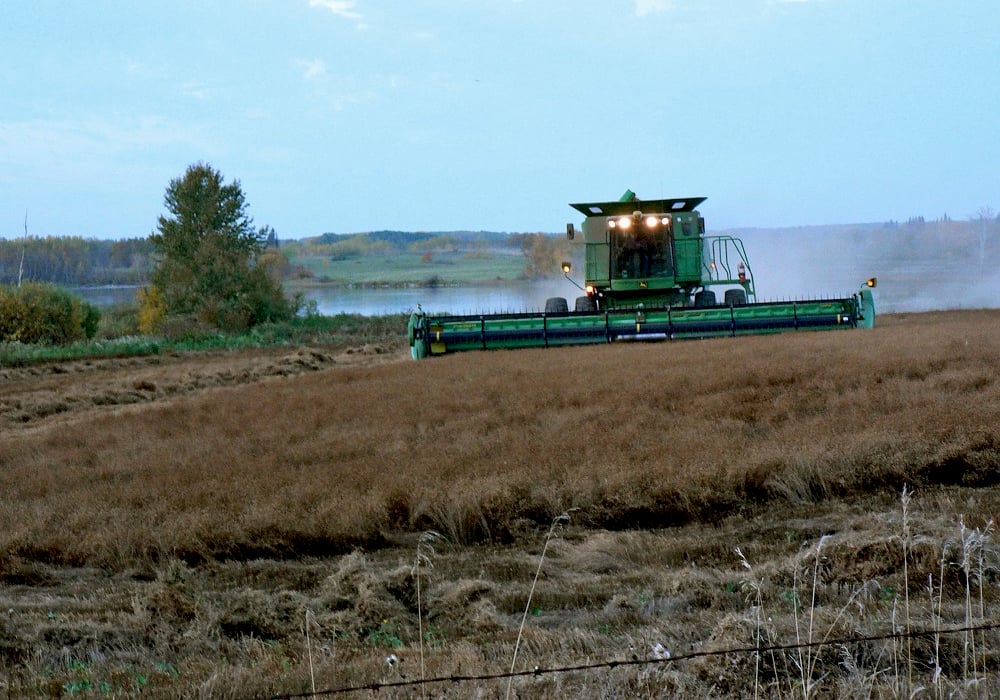Agrisoma Biosciences has reached a new agreement with PGF Biofuels Inc., giving PGF exclusive rights to distribute Resonance carinata and arrange production contracts with growers in North America and Australia.
PGF is a wholly owned subsidiary of Paterson Global Foods, a Winnipeg based company that also owns Paterson Grain and operates 40 grain handling facilities in Western Canada, including nine inland terminals.
Carinata, also known as Ethiopian mustard, is a non-food industrial oilseed crop that is used to produce biofuel for the aviation industry.
Last year, Agrisoma contracted more than 6,600 acres of the oilseed with more than 40 growers across southern Saskatchewan and Alberta.
Read Also

Most of Manitoba harvest wraps up for 2025
Manitoba Agriculture issued its final crop report of 2025, showing the overall provincewide harvest at 97 per cent complete as of Oct. 20. Nearly all major crops have finished combining, with 37 per cent of Manitoba’s sunflowers finished, plus 71 per cent of grain corn and small amounts of soybeans and potatoes left to do.
Contracted growers received $12.50 per bushel and an additional incentive of $40 per acre.
The company is hoping to contract more than 30,000 acres this year.
Paterson also assisted in distribution and contract production last year.
Under the new agreement announced April 3, Paterson will manage the purchase of Resonance carinata production from growers and the subsequent processing and sale of product.
Agrisoma will be paid a royalty on sales generated from Resonance carinata, which will vary depending on the nature of the end products sold.
“Building a strong partnership between Agrisoma and Paterson strengthens our goals to cover a much broader geographical region,” said Agrisoma president Steven Fabijanski.
“They have been at the forefront of the grain handling business for more than a century and are leaders in seed sales, relationships with farmers, logistics, transportation, elevation and the sale of grain.”
Last year, the National Research Council conducted tests on aviation biofuel made from 100 percent carinata.
Tests conducted on a jet engine showed increased fuel efficiency, a 50 percent reduction in aerosol emissions and no negative impact on engine performance.
Resonance carinata has been specifically developed for production on semi-arid land such as the brown soil zone regions of southern Saskatchewan and Alberta.
Saskatchewan Agriculture reported yields as high as 42 bushels per acre last year, despite challenging growing conditions in many areas.
Carinata production was insured in 2012 under the Saskatchewan Crop Insurance Corp.’s diversification option available for crops and varieties that are not insurable under core multi-peril crop insurance.















